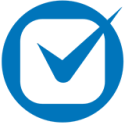Please visit our new website Hainsworth Raja & Company CPAs, PC
cparh.comA freelancer’s survival guide

Being a freelancer sounds...well, freeing. It offers freedom, flexibility and the opportunity to be your own boss. But it’s not without its own challenges. There’s no set salary or predictable workload, so it’s important to implement strategies that will help you thrive all year round. If you’re looking to create a sustainable freelance career (or maybe looking for some advice), here are seven survival tips and good habits to help you stay on track, avoid burnout and build a strong freelance business.
1. Create a regular routine
One of the biggest perks of freelancing is the power to set your own schedule. But as Voltaire once said, “With great power comes great responsibility.” And that means you have the responsibility of maintaining productivity. Creating a consistent routine helps you stay focused and avoid distractions that come with working from home or managing multiple projects.
Pro tip: Set regular working hours that suit your most productive times of the day. Block out time for client work, marketing and professional development. And don’t forget to schedule breaks to avoid burnout.
2. Market yourself consistently
Consistent work isn’t a guarantee as a freelancer. Even when you’re fully booked, it’s important that you keep marketing yourself to ensure a steady stream of projects down the road. Too many freelancers fall into the trap of only marketing themselves when work is slow.
Pro tip: Build and maintain a personal brand that resonates with your ideal clients. Create a portfolio showcasing your best work, update your LinkedIn profile regularly and engage with potential clients on social channels.
4. Build a financial safety net
Income can fluctuate from month to month for freelancers. That’s why having a financial buffer in place is important so that you don’t need to scramble for projects or panic when things slow down.
Pro tip: Set a portion of every paycheck into a savings account dedicated to covering future periods, especially during slower times. Aim for at least three to six months’ worth of expenses so you can continue to focus on finding and working with the right clients instead of just any gig that comes your way.
5. Manage your workload wisely
It’s often easy to take on more work than you can handle without realizing it, especially if you’re afraid of future gaps in your income. But spreading yourself too thin can lead to missed deadlines, poor work quality and burnout. Know how and when to say no.
Pro tip: Prioritize your workload and maintain open communication with clients about deadlines and expectations. Remember, it’s better to underpromise and overdeliver than the other way around. Use project management tools to keep track of assignments and deadlines, and if you find yourself overloaded, ask for extensions or outsource smaller tasks to a fellow freelancer.
6. Invest in continuous learning
Whether you’re a designer, writer, marketer or consultant, it’s important to stay on top of the latest trends, tools and technologies within your industry. Clients want to work with freelancers who bring new insights and updated skills to the table.
Pro tip: Dedicate time each month to professional development by attending webinars, taking online courses and reading up on the latest industry news. Investing in your skillset not only keeps you competitive but also makes you more valuable to clients (which can justify higher rates).
7. Nurture client relationships
Clients are the lifeblood of your freelance business. And it’s important to maintain strong relationships that lead to repeat business and referrals. A happy and satisfied client is more likely to recommend you to others or return with future projects.
Pro tip: Be sure to communicate regularly and transparently with clients. And go the extra mile (within reason) when possible. Little touches, like sending a follow-up email after a project or offering feedback on their processes, show you’re invested in their success, which builds trust and can lead to long-term partnerships.
Prepare for the journey
Freelancing can be a rewarding and sustainable career path, but it requires discipline, smart decision-making and continuous effort. Remember, you have the power to shape your freelancing journey—stay proactive and confident, and you’ll do just fine.




